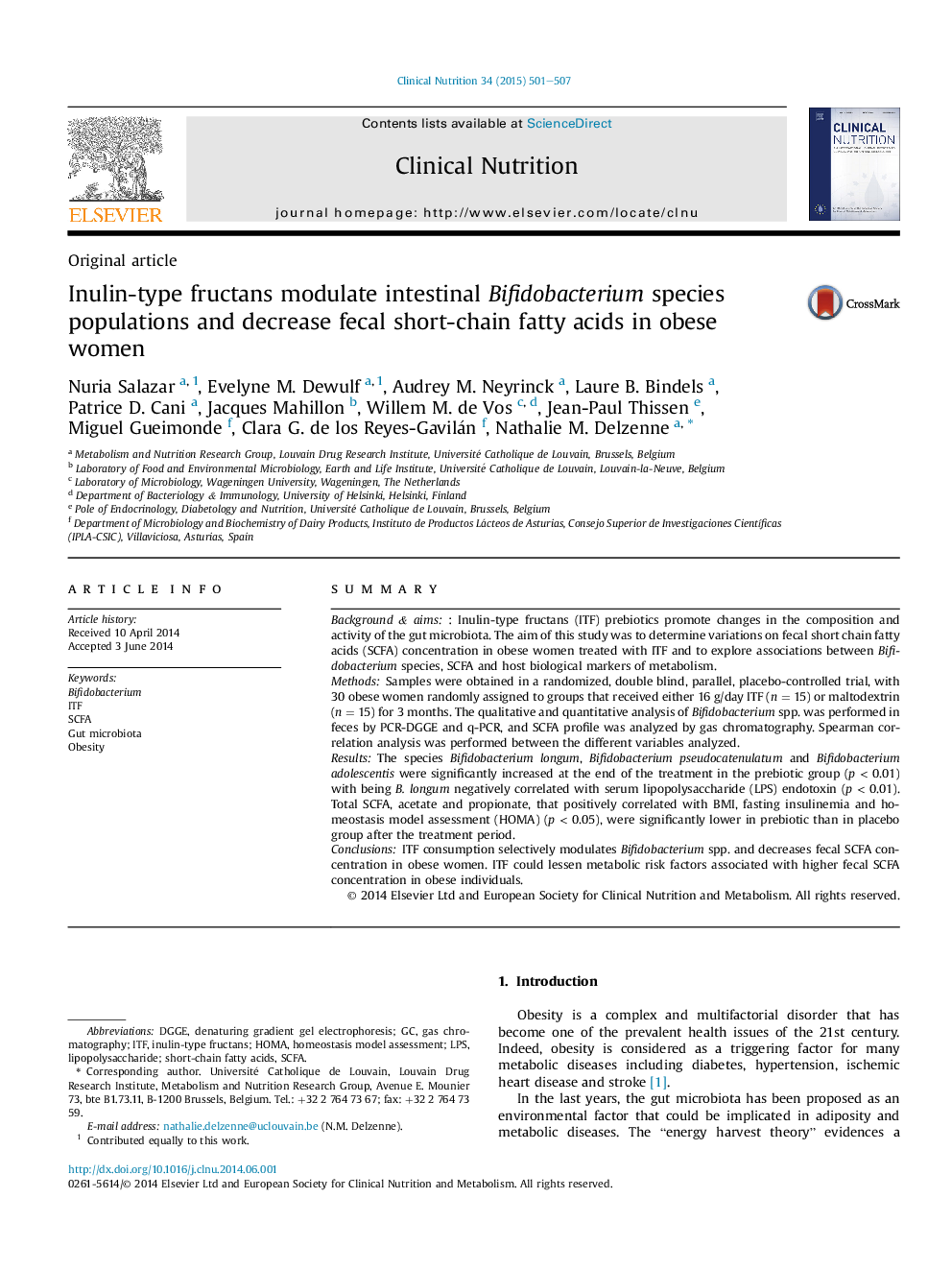| کد مقاله | کد نشریه | سال انتشار | مقاله انگلیسی | نسخه تمام متن |
|---|---|---|---|---|
| 5871752 | 1142693 | 2015 | 7 صفحه PDF | دانلود رایگان |

SummaryBackground & aims: Inulin-type fructans (ITF) prebiotics promote changes in the composition and activity of the gut microbiota. The aim of this study was to determine variations on fecal short chain fatty acids (SCFA) concentration in obese women treated with ITF and to explore associations between Bifidobacterium species, SCFA and host biological markers of metabolism.MethodsSamples were obtained in a randomized, double blind, parallel, placebo-controlled trial, with 30 obese women randomly assigned to groups that received either 16 g/day ITF (n = 15) or maltodextrin (n = 15) for 3 months. The qualitative and quantitative analysis of Bifidobacterium spp. was performed in feces by PCR-DGGE and q-PCR, and SCFA profile was analyzed by gas chromatography. Spearman correlation analysis was performed between the different variables analyzed.ResultsThe species Bifidobacterium longum, Bifidobacterium pseudocatenulatum and Bifidobacterium adolescentis were significantly increased at the end of the treatment in the prebiotic group (p < 0.01) with being B. longum negatively correlated with serum lipopolysaccharide (LPS) endotoxin (p < 0.01). Total SCFA, acetate and propionate, that positively correlated with BMI, fasting insulinemia and homeostasis model assessment (HOMA) (p < 0.05), were significantly lower in prebiotic than in placebo group after the treatment period.ConclusionsITF consumption selectively modulates Bifidobacterium spp. and decreases fecal SCFA concentration in obese women. ITF could lessen metabolic risk factors associated with higher fecal SCFA concentration in obese individuals.
Journal: Clinical Nutrition - Volume 34, Issue 3, June 2015, Pages 501-507